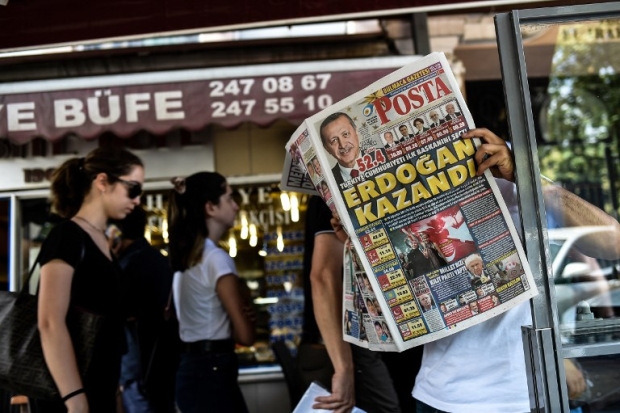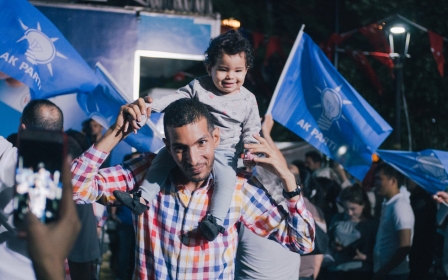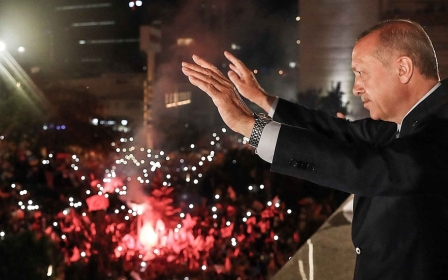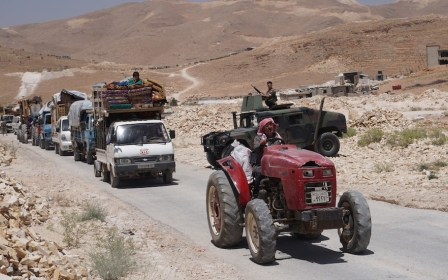How Turkish democracy is a welcome change for Syrian refugees
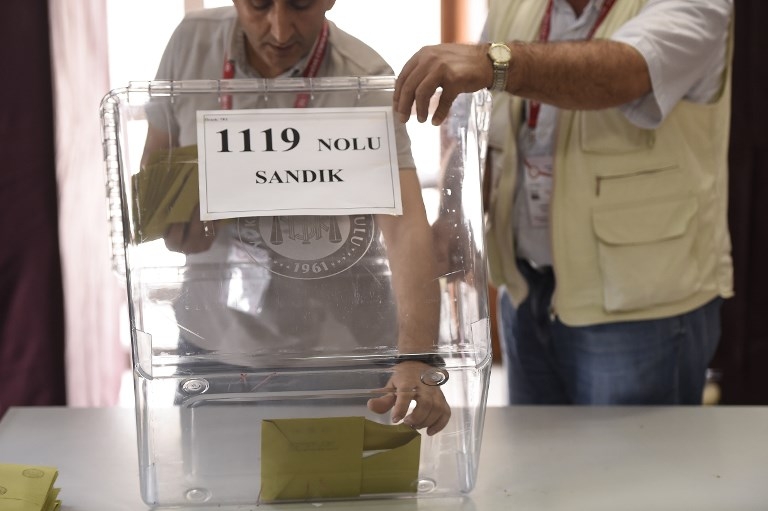
"Citizenship means participating in the elections in a country and contributing to that country," said Joud Omar, a nine-year-old Syrian girl who has been living in Turkey with her family since 2012. "If I had received Turkish citizenship, I would contribute to my country by voting and fulfilling my responsibilities."
On 24 June, Turkish people cast their ballots in the country’s presidential and parliamentary elections. The vote was especially meaningful for some of the Syrians in Turkey; those who had received their Turkish citizenship experienced, for the first time, how it felt to go to the ballot box in a democratic election.
Despite decades of atrocious repression and years of suffering from civil war in their country, Syrians were not deterred from actively participating in the political process in Turkey. Indeed, Syrian-Turkish voters viewed their new citizenship rights as a responsibility.
‘My vote will have an effect’
Homam Saada, 32, who arrived in Turkey six years ago, pointed to the value of his vote: “There is someone who will count it and consider it. My vote will have an effect.”
Saada, who lives in the Fatih district of Istanbul, received his citizenship last October. “It was a beautiful feeling when our names were listed for voting," he said. "One's country is where one is respected; Turkey is my country now … I have the same feelings for Turkey as I have for Syria. I have to be an active citizen for Turkey, as I am for Syria.”
The results were known even before we voted. We used to try to guess what percentage [President Bashar al-Assad] would pick up this time: 99.9 or 99
- Syrian-Turkish journalist
A Syrian-Turkish journalist, speaking on condition of anonymity, said: "At first I did not want to vote because I felt that I did not matter, but when I received the voting card to my house, I decided I should vote, because I felt that they really consider me one of them.”
Ahmad Hawwa, a prominent preacher in the Syrian community, explained his drive to vote as stemming from a "sense of duty", adding that when presented with real elections, “[we] feel responsible to vote for those who will serve this country”.
One of the reference points for Syrian-Turks in assessing the voting experience was their sense of dignity during the process. They contrasted this with how elections in Syria were designed to demonstrate a commitment to the regime, rather than to fulfil a civilian duty.
Assad's rigged system
The Syrian-Turkish journalist described how polling clerks in Istanbul were confused when she tried to hand them an unsealed envelope containing her vote. When she was told she needed to seal it and put it in the ballot box herself, she was shocked that the clerks were not going to check for whom she had voted.
“During the referendum in Syria, we had to forcibly go vote, and we couldn’t even show that we were not happy,” she said. "We used to be escorted by soldiers. The results were known even before we voted. We used to try to guess what percentage [President Bashar al-Assad] would pick up this time: 99.9 or 99.”
Malik al-Sibai, a 23-year-old graduate student who received his citizenship last year, said the most important aspect of the elections was the turnout. Noting how people were forced to "vote" in Syria, he said: “They were not elections. Nobody was waiting for the results because they knew that it was rigged."
He was stunned that Turkish President Recep Tayyip Erdogan's win, with 53 percent of the vote, was considered a "sweeping victory", as he was used to hearing that Assad had "won" with nearly 100 percent of the vote.
Many more steps should be taken to better integrate Syrians from a socioeconomic perspective, but Turkey has clearly taken a successful step towards their political integration
For decades, Turkish elections have involved a massive mobilisation of political parties across the country, with campaigns addressing all segments of society. Abdulrahman Sarraj, the-editor-in-chief of Turk Press, who received his citizenship in 2016, said he was impressed by the level of organisation and mobilisation.
"Contrary to what western media circulates, there is no ideological polarisation, but pragmatic polarisation in Turkey," Sarraj said.
Genuine opposition
Syrian-Turkish voters have largely embraced the post-election atmosphere, expressing their admiration of the democratic exercise. Saada said he was surprised at how easily the results were accepted by all sides: "Those who lost called Erdogan and congratulated him. There were 30 percent of the population who voted for [CHP candidate Muharrem] Ince; those are millions of people. That was real."
He compared the experience of seeing genuine opposition options with how ballots appeared in Syria, where there would be one candidate alongside a large "Yes" checkbox and a miniscule "No" checkbox.
The experience of Syrian-Turks in last month's vote highlighted many positive aspects of informed citizenship and integration. Despite being targeted by some opposition politicians who pledged to “send them back to their country”, in addition to difficulties in obtaining citizenship from Turkey, many Syrians feel that they are genuinely a part of Turkish society.
Many more steps should be taken to better integrate Syrians from a socioeconomic perspective, but Turkey has clearly taken a successful step towards their political integration.
"The night of the elections, I went out on the streets with my father, and I felt happy," said Joud, a Syrian child who spoke impeccable Turkish. "I saw that people were celebrating with such an enthusiasm. This made me feel safe."
- Zeynep Coskun Koc is is a research fellow at Al Sharq Forum. Prior to joining Al Sharq, she was a Dr. Herchel Smith fellow at the University of Cambridge conducting Economic and Anthropological research about the MENA region.
- Fatih Semsettin Isik is the Media Coordinator at Al Sharq Forum. Isik holds a BA in Political Science from Bilkent University and an MA in International Relations from Sehir University.
- Rawaan Hamoud is a junior researcher at Al Sharq Forum. She holds an MA in Anthropology from the New York University and a BA from the American University of Beirut.
Additional contribution to this article by Yaser Sayed Omar.
The views expressed in this article belong to the author and do not necessarily reflect the editorial policy of Middle East Eye.
Photo: Election committee members open a ballot box at a polling station during the Turkish presidential and parliamentary elections in Istanbul on 24 June 2018 (AFP)
Middle East Eye propose une couverture et une analyse indépendantes et incomparables du Moyen-Orient, de l’Afrique du Nord et d’autres régions du monde. Pour en savoir plus sur la reprise de ce contenu et les frais qui s’appliquent, veuillez remplir ce formulaire [en anglais]. Pour en savoir plus sur MEE, cliquez ici [en anglais].


